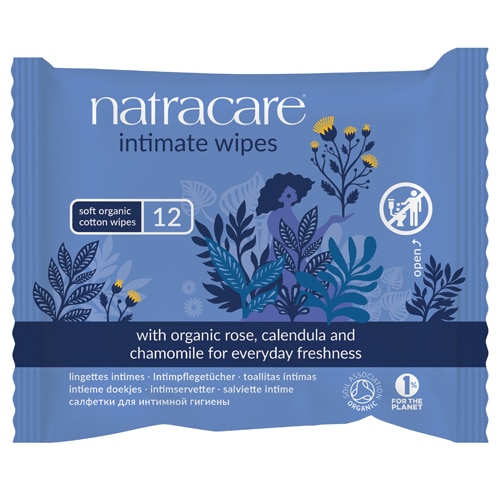What topic is the most thought-about but the least talked-about? Chances are pretty good that anyone with a uterus reading this thought "periods!" Everyone who has a uterus must deal with menses at some point in her or his life (note that not everyone with a uterus identifies as a woman, but that doesn’t mean they don’t have to deal with the same things that female-identifying uterus owners do).
So, uterus owners. Does this sound like you? You got your period as a teenager, and an adult (or another teenager) showed you how to use pads and tampons, and you’re still using the same products you were introduced to then? Have you considered trying other feminine hygiene products? Other brands? Do you feel like those same products still work well for you?
Kasey M. Eidson, MD, PhD, says, “Menstruation is different for every woman and every woman has to find products that work best for her. You shouldn’t spend your entire life using what your mother bought you when you were 13.”
Being that so many uterus owners don’t talk about feminine hygiene with their doctors – and many doctors are reluctant to talk about it* -- we sat down with Dr. Eidson and asked her some questions about feminine hygiene products, menstruation and her insights for helping people with a uterus to have the best menstrual experiences, period (pun intended).**
Under what circumstances do you recommend menstrual cups or cloth pads over disposable feminine hygiene products?
Menstrual cups are good for women for whom odor is an issue. Many women experience an improvement in this. Cost-wise it is an initial expense, but over time will be cheaper than buying tampons or pads monthly so it can be very helpful for women with limited financial resources. This is also an advantage for the washable cloth pads. Both of these products may also be better for women with sensitive skin or frequent yeast and bacterial vaginosis infections.
What, if any, medical concerns do you have about specific feminine hygiene products (not brand names, but things like tampons with chlorine)?
I don’t have any medical concerns about any feminine hygiene products if used as indicated; however, many women will leave tampons in for longer than the recommended amount of time or use tampons that are more absorbent than they need for their current menstrual flow. This can cause irritation or damage to the vaginal wall putting you at risk for infection.
What should women consider when selecting feminine hygiene products?
Lifestyle first – if you work in a busy office building with group bathrooms, washing your menstrual cup in a public sink would be unfeasible. Conversely, if you are hiking the Appalachian trail, carrying and disposing of tampons or pads will be challenging. If you are unhappy and frustrated with your current menstruation products, if they aren’t working for you, try something new.
What do you wish other doctors knew about feminine hygiene products?
We need to do a better job just asking women about their periods and their frustrations and discuss ways to improve this very significant part of our patients’ lives.
Anything else you’d like to add?
Many women hate menstruating, and if you aren’t trying to become pregnant there are very safe alternatives to having a monthly menstrual period. Hormonal IUDs and birth control implants can safely suppress your body’s production of the menstrual lining without causing any future fertility issues or other common hormonal pill side effects. These are also still covered under the Affordable Care Act so discuss with your physician.
How to get started
As Dr. Eidson explained, there’s no perfect product that fits everyone. In fact, your lifestyle probably changes from day to day (or weekday to weekend). If you need or prefer disposables, consider organic pads and tampons.
If you’re ready to try reusable pads (bonus: some come in fun colors) or pantyliners, which cost more upfront but save money in the long run, consider keeping a pot with a lid in your bathroom. Fill the pot about halfway with water and a cup of vinegar. As you change your pads throughout the day, simply drop the used ones in the pot. At the end of the day (or in the morning), dump out the water into the toilet and dump the pads into the washer. Wash on hot, with your favorite detergent and dry in the dryer, following the product's instructions.
If you’re interested in trying a menstrual cup, be sure to read about the different brands and sizes. Follow care instructions carefully—you’ll need to clean them properly and some call for occasional boiling. Cups are known to be a bit tricky to get the hang of, but a quick internet search shows that many people think they worth the learning curve.
And remember, it’s all about finding what’s right for you.
* Author’s note: I was surprised when I switched to reusable pads and the Diva Cup ™ a few years ago, and I asked a doctor at my OB/GYN’s office about menstrual cups. The doctor was dismissive and told me she didn’t know anything about them. I was further surprised by the difficulty I encountered in finding a doctor to speak with me for this article.
I know trying new things can be uncomfortable, but I swear the switch to reusable products changed my life! My period pain is significantly reduced, and I credit products that lack harmful chemicals, like chlorine, for that. I’m happy to talk about my experience if you have questions. Feel free to find me on Twitter @flamingmaiden. I’m not a doctor, just a woman who isn’t too shy about sharing my personal experiences.
** These statements are the views of Dr. Eidson and should not replace any advice you have received from your personal physician. Dr. Eidson is an employee of the Baptist Healthcare System, but these recommendations are her own and may not necessarily reflect those of the Baptist Healthcare System.





